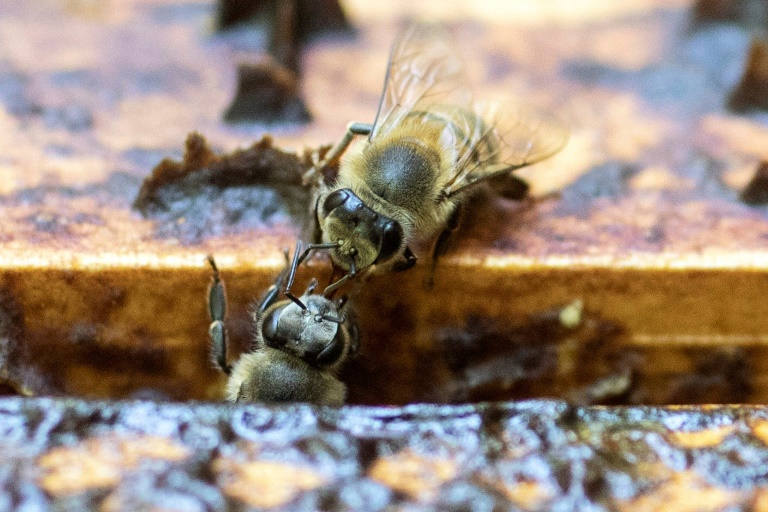Pesticides have been linked to the deaths of bees around the world – Copyright AFP Roslan RAHMAN
A new bee superfood developed by the University of Oxford, Royal Botanic Gardens Kew, the University of Greenwich, and the Technical University of Denmark might just be the key to rebooting global environments. The superfood produces 15 times more bees. That’s good news all round.
You need to see how this works. Bear with some “explanations of the obvious” to clarify some major issues.
The world’s leading pollinators have been very much on the wrong side of the news for a long time now. Bee populations have been under attack from parasites, diseases, pesticides, and chronic environmental mismanagement.
The main reason for this unholy global mess is human activity. Agriculture promotes vast unnatural monocultures, which generate pests, parasites, and diseases on a huge scale.
Monocultures are, by definition, extra vulnerable to massive population crashes. They create their own problems and never fix them. Add to this the totally unnecessary, wasteful, and useless destruction of natural habitats which provide reliable counterbalances to risks, and it’s that much worse.
This collateral damage environmental disaster is largely responsible for what’s happened to the bees. Declining bee populations worldwide are a serious overall threat to food and natural ecologies worldwide.
Let’s spell it out:
The net environmental effect of the “bee deficit” in both natural and manmade environments is to reduce the biomass for future survival.
All populations of organisms are totally interdependent down to the soil biota levels in both human and natural environments.
All of the organic chemistry in an environment can be derailed by the loss of any component group.
Plants support the entire global macroenvironment, including the critical recycling of biomass by fungi, etc. The loss of nitrates alone can cripple an ecosystem almost overnight.
The bees, therefore, don’t just support the pollination cycle. They also support most of the world’s organic chemistry directly or indirectly.
Bees to the rescue? Yes, and you can prove it.
Given the pathetic state of most human-afflicted environments, adding bees and biomass generation potential is a good, safe option.
Bees can kickstart a lot of organic chemistry in the volumes required to generate positive outcomes. It’s not just honeybees, either. Many other types of native bees and pollinators could be used for local and macro-level regeneration and preservation.
You could generate some good, useful metrics, too. Adding bees is roughly the equivalent of adding energy to a power system. The metrics should show multiple increases in biomass elements, biota, etc.
In comparison to a biologically impoverished environment, you should generate an encyclopaedia’s worth of new phenomena.
To bee sure.
__________________________________________________________
Disclaimer
The opinions expressed in this Op-Ed are those of the author. They do not purport to reflect the opinions or views of the Digital Journal or its members.
